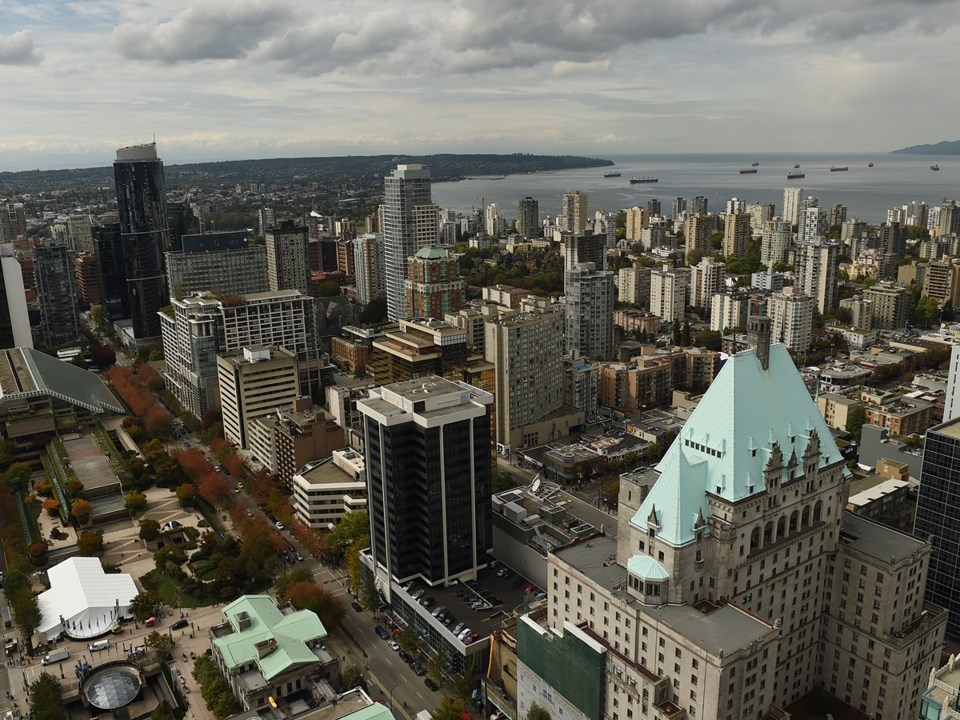City council wants it to be five per cent or lower.
Regardless of what your 11 politicians decide at tomorrow’s meeting, taxpayers know all too well it’s not just a property tax hike that puts a dent in the wallet.
It’s also all those other regional and provincial taxes a property owner has to pay on top of a tax hike. That includes taxes paid to TransLink, BC Assessment, the Municipal Finance Authority and a significant chunk for schools.
Add utility fees for sewer, water and solid waste and it gets expensive.
The overall tax bill for the owner of median single-family home assessed at $1.7 million in Vancouver this year totalled $6,600, according to a presentation members of the city’s finance team delivered to council last week.
The only other city with a higher tax bill in the region this year was West Vancouver, where an owner of a median single-family home paid $9,406. The District of North Vancouver placed third at $6,311, New Westminster was at $6,254 and White Rock at $6,099.
Langley was the lowest among 17 cities at $4,067.
Driving a steady increase in Vancouver homeowners’ overall bills has been the council-approved property tax hikes, which have totalled 23.54 per cent since the current council was elected in 2018.
In council’s first year, the hike was 3.87 per cent. It jumped to 6.05 per cent the second year before climbing to 7.69 in 2020. This year, the hike was 5.53 per cent.
For business owners over the same period, property taxes increased 15.43 per cent, a lesser hike than homeowners because of a council-directed tax shift to have homeowners pay more. That shift ends this year.
What doesn’t end is the continued increase in utility fees for water, sewer and solid waste.
For the owner of that median single-family home assessed at $1.7 million, it will mean next year’s water bill will be $810 ($17 higher than 2021), $653 for sewer ($72 higher than 2021) and $356 for solid waste ($15 higher than 2021).
For the owner of a business property assessed at $1,024,000, the overall increase in utilities from 2021 will total $100.
Those rates are expected to increase year over year, with the city forecasting utility fees just for sewer to increase 15 per cent per year until 2026.
What’s driving that increase?
In short, as council heard last week from Metro Vancouver’s Chief Administrative Officer Jerry Dobrovolny, the need for upgrades to sewers, water supply tunnels and major projects such as the Iona Island Wastewater Treatment Plant in Richmond, which serves parts of Vancouver.
“We know that over time, there will be more significant increases on the Vancouver sewage area with the replacement of Iona,” Dobrovolny said of the $10.4-billion project.
“And we'll be working closely with your staff not only on funding strategies, but also on an intergovernmental relations strategy with senior governments, too, because that project has such a tremendous number of benefits in terms of environmental and climate change and resiliency and GHG reductions, etcetera.”
In other words, have Metro Vancouver and city staff see if they can wrangle some money from the provincial and federal governments towards the bill. Which, in the end, is money that still comes from taxpayers.
Before I conclude here, I should mention that fees for permits, licences and recreation facility users are also supposed to go up next year between two and five per cent.
Add it all up folks and Captain Obvious will tell you life is not getting cheaper in Vancouver.
For those who don’t feel sorry for people sitting on properties that have skyrocketed in value in recent years, that’s understandable. As for the “house rich, cash poor” argument from property owners, that’s for another day.
What is for today is that tax and fee hikes never translate well for renters.
Expect a long council meeting Tuesday.
It’s the last budget mashup for this crew until the October 2022 election.
So you can bet that amendment will be the word of the day as each of the 11 politicians will attempt to make their mark on the 2022 budget.
Will the Vancouver Police Department get the budget they asked for? Will Vancouver Fire Rescue Services get enough money to hire more firefighters? Will council agree to Mayor Kennedy Stewart’s proposal for a climate change levy?
The meeting begins at 9:30 a.m.
@Howellings



